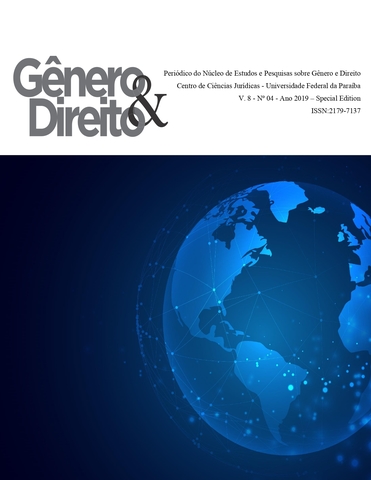DEVELOPMENT OF THE CONTENT AND FUNCTIONS OF A FIRM WITH THE ACCOUNT OF THE ECONOMIC DISEQUILIBRIUM CONDITIONS
DOI:
https://doi.org/10.22478/ufpb.2179-7137.2019v8n4.48376Palavras-chave:
firm, institute of “firm”, market, the nature of a firm, economic transformation, economic disequilibriumResumo
The paper examines the actual problem which is a complex and contradictory process of origin, formation and development of a firm and its functions. It is shown that the structure of a firm, the features of its organization, the nature of the functions performed and the changes occurring therein have a great influence on the efficiency of management, on the properties and characteristics of economic systems. It is within its framework that a complex process of interaction between all factors of human life activity: historical, natural, cultural, economic, including the basic principles and types of long-term behavior of economic agents are formed. All that has been said undoubtedly confirms the relevance of the topic under research. However, despite the importance of solving these problems, up to the present time there is no single understanding of the concept “firm”, nor a generally accepted view of its nature and functions. In the paper, all these issues are considered in relation to various stages of economic evolution and in the context of several main approaches: classical, institutional, evolutionary and behavioral, in which the concepts of the firm, its nature and functions are significantly different. The main directions of gradual changes in views on the institution of “firm” are shown: a consistent departure, and then a complete rejection of the principle of rationality, which was decisive at the stage of domination of the classical approach; weakening the importance of the theory of general equilibrium; creation of “company” models, first, describing its behavior in the real conditions of economic uncertainty and a disequilibrium environment, secondly, orienting in making decisions not for the best, but for an acceptable resultDownloads
Referências
Adam Smith. An Inquiry into the Nature and Causes of the Wealth of Nations, Produced by Colin Muir, and David Widger, 2013, 985 p.
Marshall Alfred.Principles of Economics 8th Ed. - Palgrave Macmillan, 2013.- xxviii + 731 p.
Doroshenko M.E. Analysis of disequilibrium states and processes in macroeconomic models. - M: TEIS, 2000. - 206p.
Robinson Joan. The Economics of Imperfect Competition. London: Macmillan, 1933.
Schumpeter J.A. History of Economic Analysis. NY: Oxford University, 1954.
Coase R.H. The firm, the Market, and the Law. - University of Chicago Press, 2012. - 226 р.
Williamson O.E. The Economic Institutions of Capitalism: Firms, Markets, Relational Contracting. - New York: The Free Press, 1985.
Nelson R., Winter S. An Evolutionary Theory of Economic Change. - Cambridge, Mass.: Harvard Univ. Press, 1982.
Herbert A. Simon.Theories of Decision-Making in Economics and Behavioral Science. - The American Economic Review, Vol. 49, No. 3. (Jun., 1959), pp. 253-283.
Leibenstein H. Beyond the Economic Men. Cambridge (Mass), 1976. - 297p

